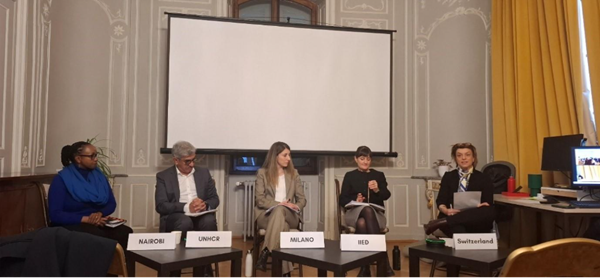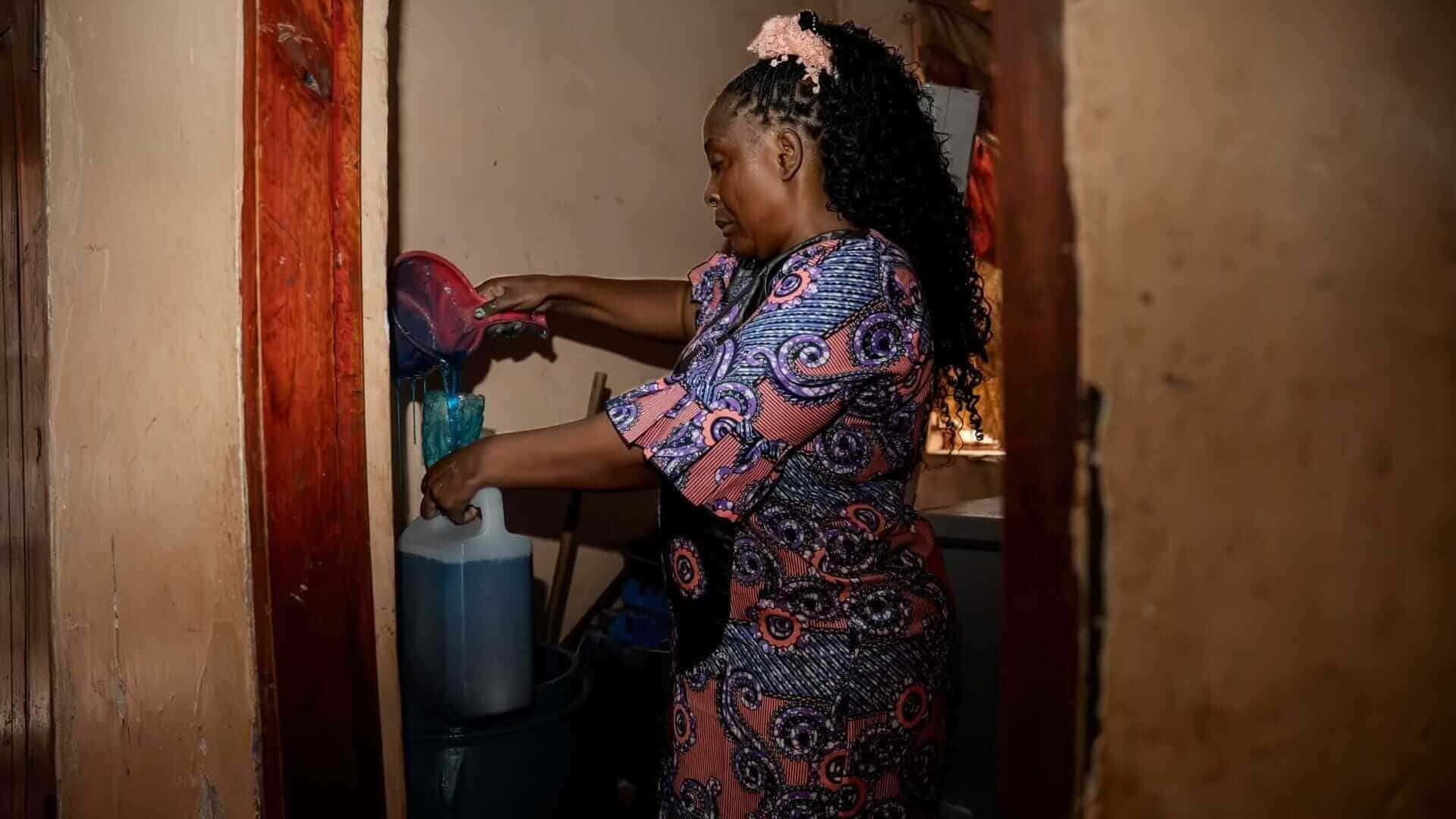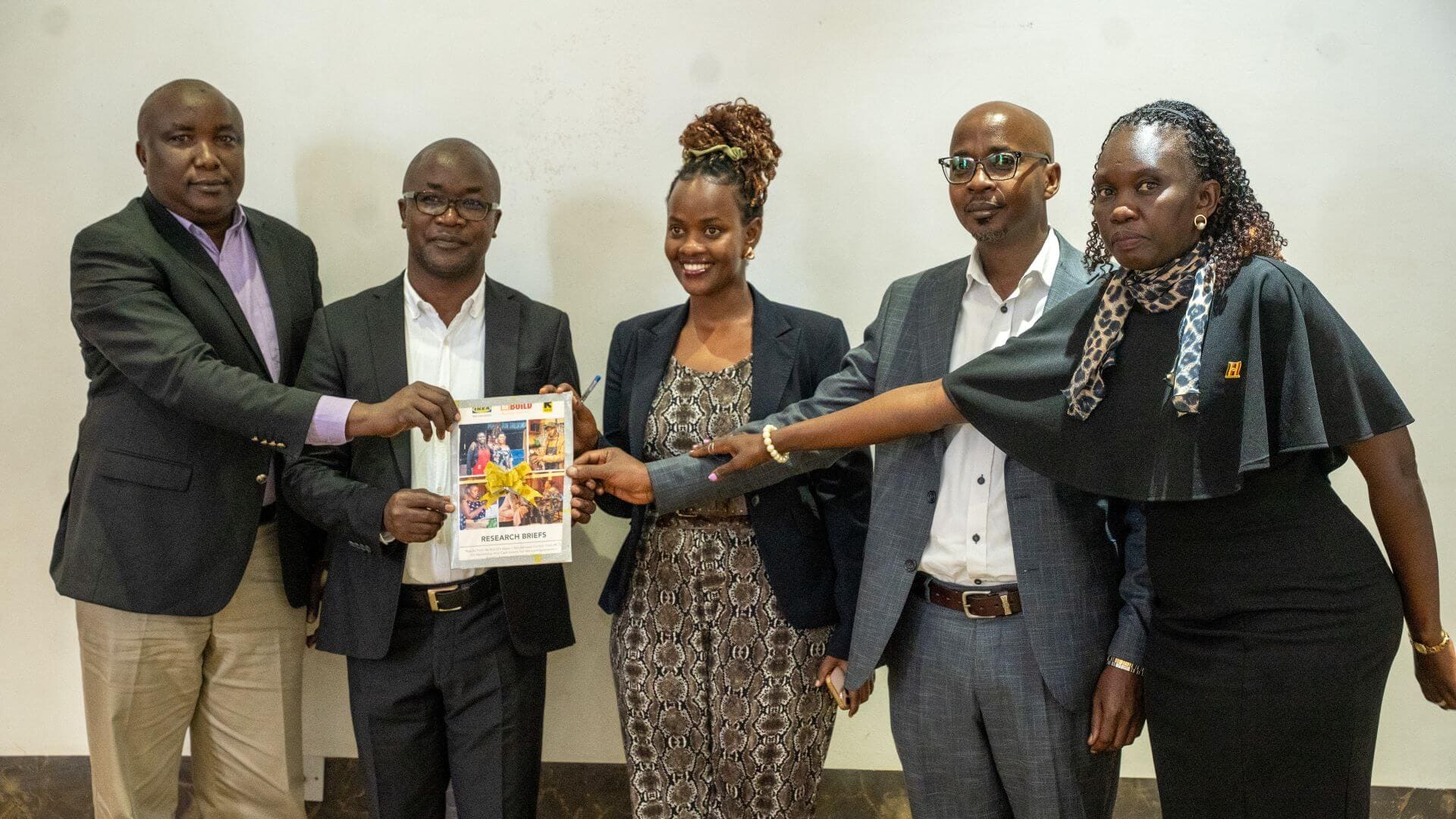The Significant Role and Influence of Refugees in Kampala City Development
The Significant Role and Influence of Refugees in Kampala City Development
The Significant Role and Influence of Refugees in Kampala City Development
By Edna Kyokunzire, Moses Okot and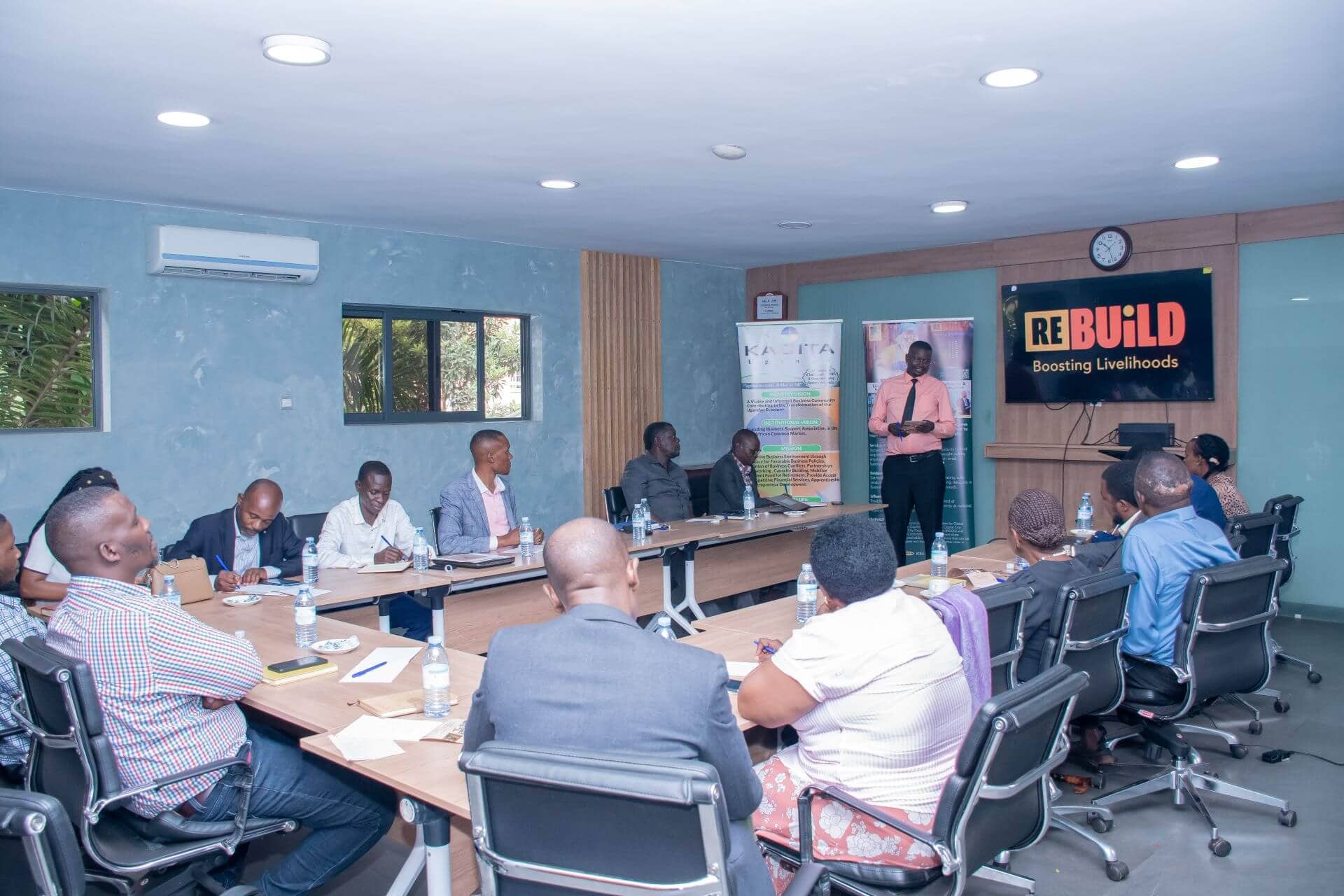
Thaddeus Musoke Nagenda, Chairman, KACITA speaking during the Re:BUilD engagement with board members of Kampala City Traders Association (KACITA) at Fairway Hotel In Kampala on February 6, 2025. The capacity building workshop on refugee rights and policies in Uganda was held to equip the traders’ body with knowledge on how to better engage and involve refugees in their activities. Photo by Edna Kyokunzire/IRC
“I have to agree that at first, I had seen refugees running businesses in Kampala as threats to our local business people and was afraid they would push them out of the market, said Isa Sekito, the Spokesperson of Kampala City Traders association (KACITA), adding that: “Through such engagements, we learn that refugees are actually contributing to the development of our city through paying taxes, and employing even Ugandans.”
On February 6, 2025, the IRC’s Re:BUiLD program, in partnership with the Office of the Prime Minister (OPM) and Platform for Vendors Uganda (PLAVU) held a workshop at Fairway Hotel in Kampala to train KACITA board members on refugee legal frameworks and policies. The training was aimed at equipping them with the knowledge needed to include refugee traders in their membership and support their economic integration, ensuring that refugee entrepreneurs can actively participate in the urban economy.
Thaddeus Musoke Nagenda, the Chairman, of KACITA, in his opening speech opined that: "Where there are challenges, there are also opportunities. Let’s view the refugee situation in Kampala as an opportunity to leverage for growth and positive change."
The training module encompassed a wide range of relevant concepts including International and national legal frame work with a focus on refugee rights and obligations and the role of government in Refugee protection. During the plenary discussions, Moses Okot, Advocacy Manager, Re:BUiLD, called for compassion in handling refugees: “Let us view refugees not as strangers, but as our brothers and sisters. I am reminded of the 1970s, when Sudan and Kenya opened their doors to host many Ugandan refugees, demonstrating the power of solidarity and compassion." This statement resonated with the participants to which two officials seconded the statement.
The workshop is part of IRC’s ongoing strategy on Localization and the efforts to empower local organizations and foster inclusive economic opportunities for refugee communities in urban settings.
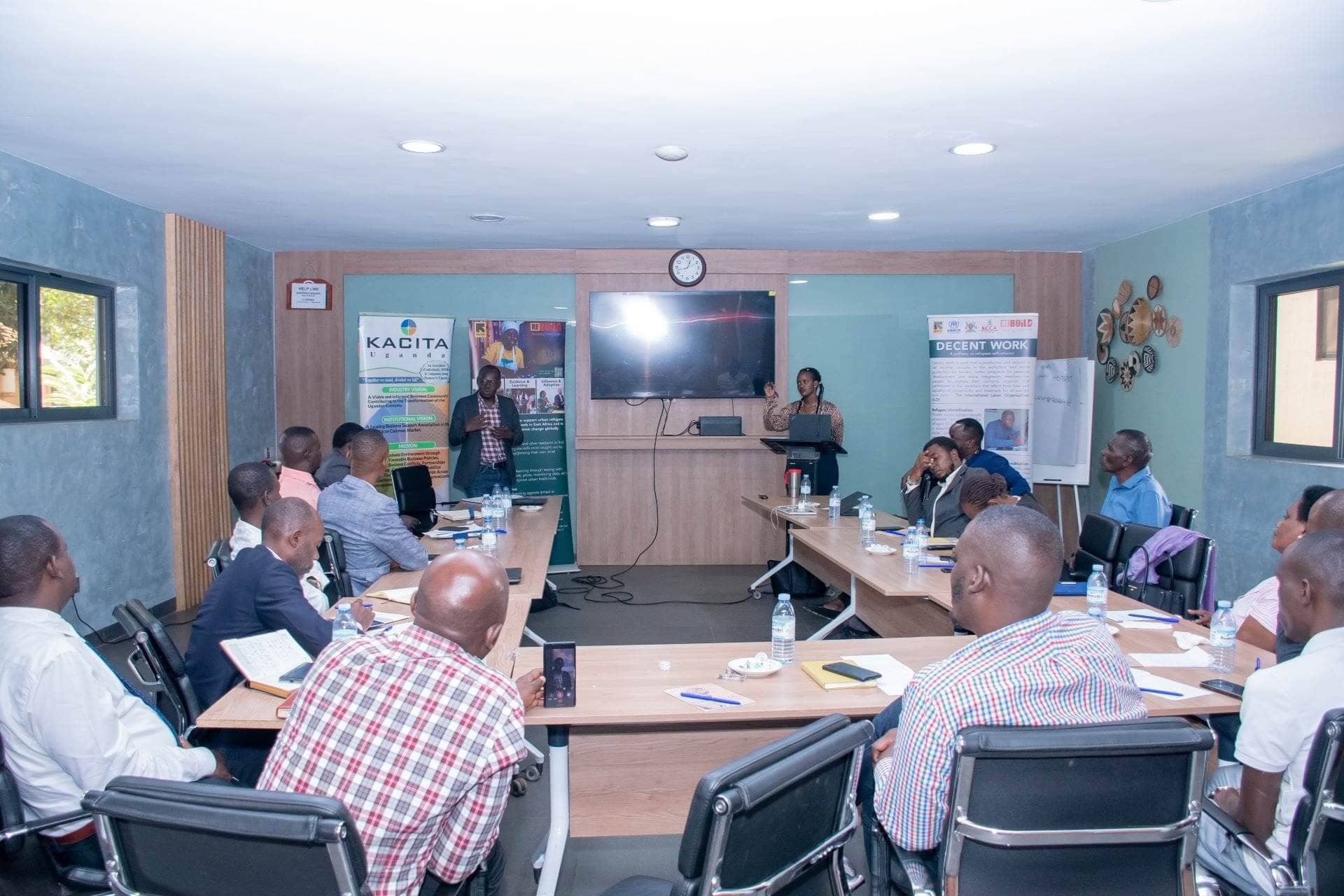
Moses Odokonyero, Re:BUiLD Senior Program Manager for Uganda and Agnes Baseera an official from the Office of the Prime Minister (Uganda) responding to queries from KACITA Board Members.
Key issues raised
The main issues flagged and deliberated upon during the training included:
Request to empower KACITA in dispute resolution: Especially in those related to refugee business traders. It was unanimously agreed that KACITA is best placed to address such concerns since it best understands the language and dynamics of the business environment.
Perceived biases on dispute resolution: The tendency of the Government and Refugee organizations to side with refugees creates frustration to host community traders as perceived by them in different settings. Therefore, it is essential to address the concerns of the host community by ensuring that policies and support programs are balanced, offering equal opportunities for both refugees and local traders. This approach would foster positive relations, mitigate tensions, and promote economic integration, benefiting both groups in the long term.
Violation of land laws: Mr. Issa Sekito, KACITA’s Spokes person raised a concern of refugees and foreigners violating Uganda’s land laws. He mentioned that refugees and Host communities have a tendency of purchasing land through proxies rather than following the legally required procedure through a lease. , the Land Act, Section 40 generally prohibits non-citizens (foreign nationals) from directly owning land in Uganda, particularly freehold land. However, it allows foreigners (including refugees) to purchase land in Uganda through a leasehold interest, with the lease not exceeding 99 years. KACITA requested for increased education and awareness for both host communities and refugees on land rights and the legal implications of proxy land ownership.
Impact of informal hawkers affecting the business environment in Kampala: There is a need to empower refugee traders to legitimize their businesses by registering and license their business to create fairness in trade. Thaddeus Musoke , the Chairman, of KACITA pointed out that unregistered traders often avoid taxes and licensing fees, which allows them to sell goods at lower prices, undermining legitimate businesses which bear the costs of compliance and are placed at a disadvantage as they struggle to compete with unregistered, informal refugee traders who have lower overheads. He highlighted that the combination of these challenges anecdotally impedes the growth of these businesses in terms of sales growth, profitability, growth in employment and length of business existence. This statement corroborates the research report from the Economic Policy Research Centre, research findings 2024 Indicating that compounded by lack of information and awareness about the importance of business registration and the high compliance costs associated with business registration and obtaining licences discourage informal firms from formalizing.
From their survey, about 56 per cent of informal businesses in Uganda are unaware of the significance of registering their businesses and where to get information on registration. The complexity of tax return filing and obtaining Tax Identification Numbers (TINs) adds to these costs. Relatedly, the high registration cost and licensing fees by Uganda Registration Services Bureau (URSB), Uganda Revenue Authority (URA), and the local authorities has exacerbated the problem. This is further worsened by bureaucratic inefficiency in the registration process due to long duration and delays in obtaining trading licenses upon submitting all requirements and payment of requisite fees.
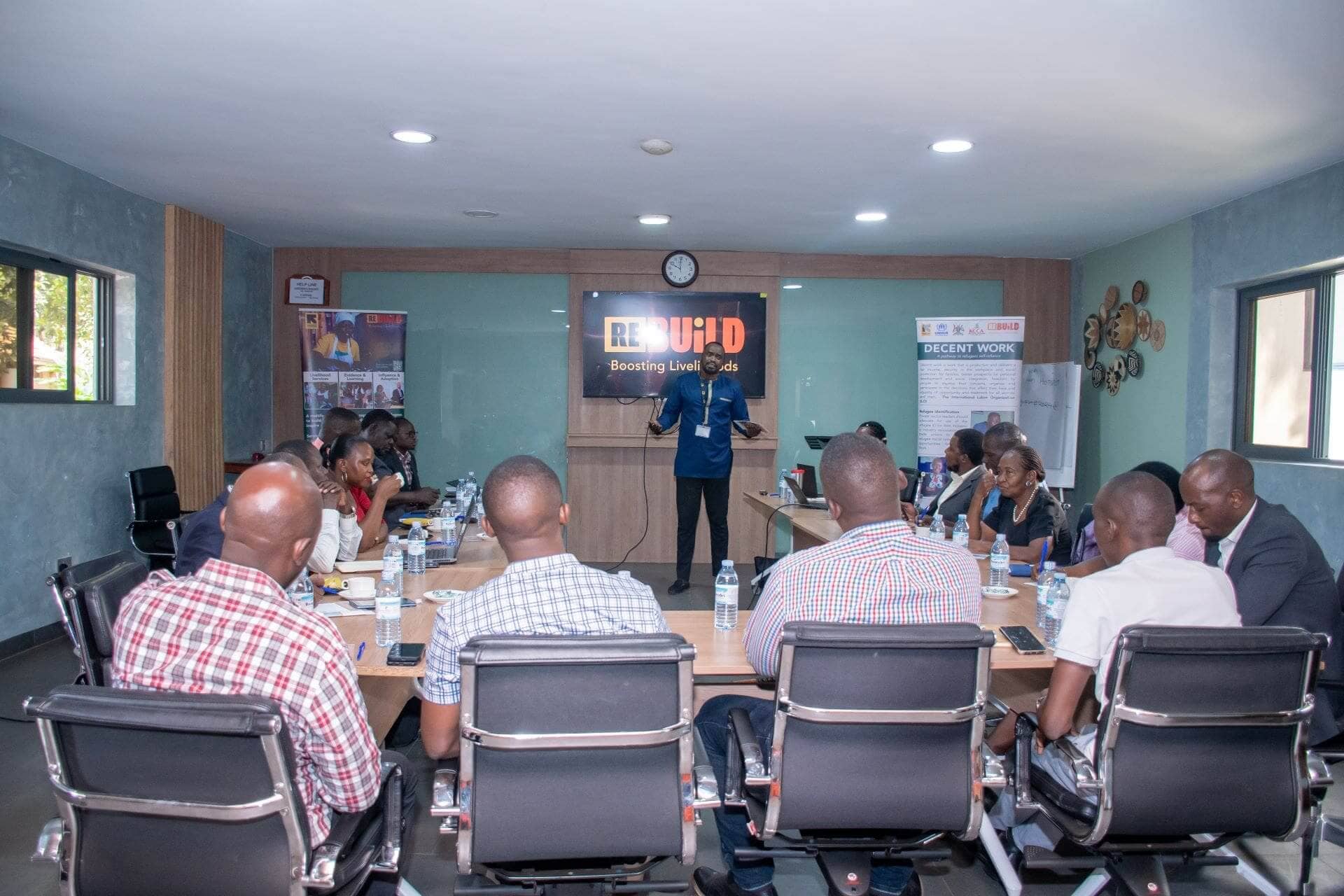
Moses Okot the Re:BUiLD Adocacy Manager facilitating a session on the Legal Frame Work for refugees
Key Outcomes
At the end of the workshop, key action points were generated that are expected to further strengthen the collaboration between KACITA, the IRC, and urban refugees. These include;
Inclusion of refugee traders into KACITA membership: This is key to fostering economic inclusion and providing refugee traders with a platform to engage with local businesses, access resources, and participate in the broader economic activities within Kampala. By integrating refugee traders into KACITA, the association can support their business growth and enhance their self-reliance, while also contributing to the overall economic development of the city.
Formalized Partnerships for Accountability Purposes: Additionally, there was a discussion around the possibility of formalizing the collaboration between KACITA and the IRC through the development of a Memorandum of Understanding (MoU). This MoU would serve as a framework for future partnerships, outlining shared goals, roles, and responsibilities of both parties. Such a formal agreement would ensure sustained support for refugee traders, define clear pathways for cooperation, and create a structured approach to addressing challenges and opportunities in the integration of refugees into the urban economy. This framework can be monitored and sustained beyond the lifetime of Re:BUiLD
